Kexx Sanneh and the Police
No citizen should be charged with ‘giving false information to a public officer’. The Poliso Magazine has reported that the Police have established that Kexx’s story of kidnapping was false based on their investigations. Hence they should now release Kexx to deal with the consequences of his false reporting of a crime.
By this revelation by the police, it means Kexx has seriously injured his credibility and public image which will impact heavily on his reputation today and in the future. That’s already a heavy burden for a young promising guy like him to address. Until we hear from him to better understand his true circumstances, I wish him good luck to go through this most difficult moment!
The police report is also enough deterrent for anyone else who may choose to falsely report a crime. It shows that one cannot fool the police. Therefore the police may not need to burden themselves with a new case on this matter.
Yes, reasonably it’s should be an offense to report, falsely, a crime to the police. If there is such a particular provision in the Criminal Code then let the police charge him on that particular provision. But not with ‘giving false information to a public officer’.
The former AG Tambadou had said it, and confirmed by the former SG Marenah before the TRRC, that they had decided not to prosecute anyone for the offense of ‘giving false information to a public officer’!
This was a Yaya Jammeh tool intended to undermine or weaken justice and accountability, and intimidate citizens, and allow abuse and impunity to prevail.
Therefore the Police can only continue to detain Kexx if he had or was suspected of committing or about to commit another crime, but not for his false reporting. In that case, as the police continue with their investigation, they should give Kexx either self recognizance, bail, or bail with surety until they can finish their investigation
Therefore I urge the police to release Kexx to deal with the consequences of his actions.
Bravo to the police for urgently addressing this issue.
For The Gambia Our Homeland
Breaking News: Kexx Sanneh arrested for lying about kidnapping
Kemeseng Sanneh otherwise known as Kexx Sanneh has been arrested by police over his kidnapping complaint.
Police said their investigations have revealed Kexx Sanneh was never kidnapped or abducted.
Police in a statement on Monday said: “The Police High Command wishes to inform the public that Kemeseng Sanneh known as Kexx Sanneh is currently under arrest and helping the Police in their investigations.
“His arrest came following a case report he filed at the LK German Police Station on Saturday 27th March 2021, alleging being kidnapped by unidentified individuals.
“He claimed to have been dumped at Erinjang Cemetery on the 24th March 2021, which information he knew to be false and misleading.
“The Crime Investigation Department opened a swift investigation into the circumstances leading to his alleged kidnapping with a view to prosecute anyone found responsible in accordance with the Laws.
“However, investigations revealed that, Kemeseng Sanneh was never kidnapped or abducted by any individual.
“Sufficient evidence gathered showed that he was not kidnapped and placed in a car as alleged; but instead, he spent that very night in his house with a Marabout from Senegal who’s service he hired.
“Further investigations revealed that Kemeseng Sanneh was involved in a fraudulent marabout scam, details of which are subject of further investigations.
“The GPF High Command hereby commends the public for the swift response in providing relevant information useful to the Investigation.
“Members of the public are further encouraged to be law abiding and warned against spreading false and misleading information on crime for any reason.
“The Police is also applying due diligence in ensuring the safety of Kemeseng as he continues to help in the investigations.”
Kexx Sanneh’s Alleged Kidnapping
By Zakaria Kemo Konteh, ZKK
The circumstance(s) surrounding Kexx Sanneh’s reported kidnapping has generated intense debates and interests among our social media community. Like many, not only am I deeply troubled by the brazen and audacious part of the operation but also by the very personal nature of it all.
Kidnappings don’t often occur randomly. Perpetrators usually have some connections with their victims and they know what they are looking for when they strike. For this reason, they take meticulous planning, preparation, rehearsal and execution.
Those who had carried out this assault on Kexx had to have known him and were familiar with his routine, striking when the young man was very vulnerable. The fact that Kexx was gagged, bound and dumped in a cemetery also highlighted deep personal resentment harbored by his kidnappers towards him. The exact motive though shrouded in mystery and likely subject of rigorous police investigation.
Thetefore, as investigators work hard to piece together what really happened, Kexx’ treatment at the hands of his kidnappers could provide critical clues to determining their true motive and their level of sophistication. For example; was he tortured while in captivity? If so, what kind of torture was meted out to him? Was he given food and water or allowed to use the bathroom? Was he questioned during the entire time he was detention and what types of questions were posed to him? What part of his political or personal activities was the focus of his kidnappers? Does he remember any little detail about the location or the room he was held in?
Am sure Kexx will be able to shed more light on these and many more to the appropriate investigating authority. But, it could also take the turn of complex, drawn-out investigation especially if key details are scanty and/or eye witnesseses not available or unwilling to come forward. We encourage anyone with credible information or helpful tips to please share with the police so this investigation proceed smoothly and speedily and a satisfactory conclusion/resolution reached – the identification, arrest and prosecution of the criminals behind this dastardly act on our fellow citizen.
Meanwhile, we offer our prayers and words of comfort to Kexx and his family. No human being, let alone a Gambian, should have to endure such a terrifying experience in the streets of our dear country. We condemn it in the strongest possible term. And In praying for Kexx’ well being as well as his physical and emotional healing from this traumatizing ordeal, we are grateful that he is reunited with his family and continuing his work for the country we all love.
The factories turning West Africa’s fish into powder
By Ian Urbina
Gunjur, a town of some 15,000 people, sits on the Atlantic coastline of southern Gambia, the smallest country on the African continent. During the day, its white-sand beaches are full of activity. Fishermen steer long, vibrantly painted wooden canoes, known as pirogues, toward the shore, where they transfer their still-fluttering catch to women waiting at the water’s edge.
The fish are hauled off to nearby open-air markets in rusty metal wheelbarrows or in baskets balanced on heads. Small boys play soccer as tourists watch from lounge chairs. At nightfall, work ends and the beach is dotted with bonfires. There is drumming and kora lessons; men with oiled chests grapple in traditional wrestling matches.
Hike five minutes inland, and you’ll find a more tranquil setting: a wildlife reserve known as Bolong Fenyo. Established by the Gunjur community in 2008, the reserve is meant to protect 790 acres of beach, mangrove swamp, wetland, savannah, and an oblong lagoon. The lagoon, a half-mile (800m) long and a few hundred yards wide, has been a lush habitat for a remarkable variety of migratory birds as well as humped-back dolphins, epaulet fruit bats, Nile crocodiles, and callithrix monkeys.
A marvel of biodiversity, the reserve has been integral to the region’s ecological health – and, with hundreds of birders and other tourists visiting each year, to its economic health, too.
But on the morning of 22 May 2017, the Gunjur community discovered that the Bolong Fenyo lagoon had turned a cloudy crimson overnight, dotted with floating dead fish. “Everything is red,” one local reporter wrote, “and every living thing is dead.” Some residents wondered if the apocalyptic scene was an omen delivered in blood. More likely, ceriodaphnia, or water fleas, had turned the water red in response to sudden changes in pH or oxygen levels. Locals soon reported that many of the birds were no longer nesting near the lagoon.
A few residents filled bottles with water from the lagoon and brought them to the one person in town they thought might be able to help – Ahmed Manjang. Born and raised in Gunjur, Manjang now lives in Saudi Arabia, where he works as a senior microbiologist. He happened to be home visiting his extended family, and he collected his own samples for analysis, sending them to a laboratory in Germany.
The results were alarming. The water contained double the amount of arsenic and 40 times the amount of phosphates and nitrates deemed safe. The following spring, he wrote a letter to Gambia’s environmental minister, calling the death of the lagoon “an absolute disaster”. Pollution at these levels, Manjang concluded, could only have one source: illegally dumped waste from a Chinese fish-processing plant called Golden Lead, which operates on the edge of the reserve. Gambian environmental authorities fined the company $25,000 (£18,000), an amount that Manjang described as “paltry and offensive”.
Golden Lead is one outpost of an ambitious Chinese economic and geopolitical agenda known as the Belt and Road Initiative, which the Chinese government has said is meant to build goodwill abroad, boost economic cooperation, and provide otherwise inaccessible development opportunities to poorer nations. As part of the initiative, China has become the largest foreign financier of infrastructure development in Africa, cornering the market on most of the continent’s road, pipeline, power plant and port projects.
In 2017, China cancelled $14m (£10m) in Gambian debt and invested $33m (£23.8m) to develop agriculture and fisheries, including Golden Lead and two other fish-processing plants along the 50-mile (80km) Gambian coast. The residents of Gunjur were told that Golden Lead would bring jobs, a fish market, and a newly paved, three-mile road through the heart of town.
Golden Lead and the other factories were rapidly built to meet an exploding global demand for fishmeal – a lucrative golden powder made by pulverising and cooking fish. Exported to the United States, Europe, and Asia, fishmeal is used as a protein-rich supplement in the booming industry of fish farming, or aquaculture. West Africa is among the world’s fastest-growing producers of fishmeal: more than 50 processing plants operate along the shores of Mauritania, Senegal, Guinea Bissau, and The Gambia. The volume of fish they consume is enormous: one plant in The Gambia alone takes in more than 7,500 tons of fish a year, mostly of a local type of shad known as bonga – a silvery fish about 10in (25cm) long.
For the area’s local fishermen, most of whom toss their nets by hand from pirogues powered by small outboard motors, the rise of aquaculture has transformed their daily working conditions: hundreds of legal and illegal foreign fishing boats, including industrial trawlers and purse seiners, criss-cross the waters off the The Gambian coast, decimating the region’s fish stocks and jeopardising local livelihoods.
After Golden Lead was fined, in 2019, it stopped releasing its toxic effluent directly into the lagoon. Instead, a long wastewater pipe was installed under a nearby public beach. Locals claimed it has been dumping waste directly into the sea. In March 2018, about a hundred and fifty local shopkeepers, youth and fishermen, wielding shovels and pickaxes, gathered on the beach to dig up the pipe and destroy it but two months later a new one was installed with the government’s approval.
Jojo Huang, the director of the plant, has said publicly that the facility follows all regulations and does not pump chemicals into the sea. The plant has benefitted the town, Golden Lead told Reuters, by helping fund a school and making donations for Ramadan celebrations.
It makes no sense!” Manjang told me, when I visited him in Gunjur at his family compound, an enclosed three-acre plot with several simple brick houses and a garden of cassava, orange and avocado trees. Behind Manjang’s thick-rimmed glasses, his gaze is gentle and direct as he speaks urgently about the perils facing The Gambia’s environment. “The Chinese are exporting our bonga fish to feed it to their tilapia fish, which they’re shipping back here to Gambia to sell to us, more expensively – but only after it’s been pumped full of hormones and antibiotics.” Adding to the absurdity, he noted, is that tilapia are herbivores that normally eat algae and other sea plants, so they have to be trained to consume fish meal.
Manjang contacted environmentalists and journalists, along with Gambian lawmakers, but was soon warned by the Gambian trade minister that pushing the issue would only jeopardise foreign investment. Bamba Banja, the head of the Ministry of Fisheries and Water Resources, was dismissive, telling a local reporter that the awful stench was just “the smell of money”.
Global demand for seafood has doubled since the 1960s. Our appetite for fish has outpaced what we can sustainably catch: more than 80% of the world’s wild fish stocks have collapsed or are unable to withstand more fishing. Aquaculture has emerged as an alternative – a shift, as the industry likes to say, from capture to culture.
The fastest-growing segment of global food production, the aquaculture industry is worth $160bn (£116bn) and accounts for roughly half of the world’s fish consumption. The US imports 90% of its seafood, more than half of which is farmed. The bulk of that comes from China, by far the world’s largest producer, where fish are grown in sprawling landlocked pools or in pens offshore spanning several square miles.
In India and other parts of Asia, these farms have become a crucial source of jobs, especially for women. Aquaculture makes it easier for wholesalers to ensure that their supply chains are not indirectly supporting illegal fishing, environmental crimes, or forced labour. There’s potential for environmental benefits, too: with the right protocols, aquaculture uses less fresh water and arable land than most animal agriculture. Farmed seafood produces a fraction of the carbon emissions per pound that beef does, and two-thirds of what pork does.
Still, there are also hidden costs. When millions of fish are crowded together, they generate a lot of waste. If they’re penned in shallow coastal pools, the solid waste turns into a thick slime on the seafloor, smothering all plants and animals. Nitrogen and phosphorus levels spike in surrounding waters, causing algal blooms, killing wild fish, and driving away tourists. Bred to grow faster and bigger, the farmed fish sometimes escape their enclosures and threaten indigenous species.
The biggest challenge to farming fish is feeding them. Food constitutes roughly 70% of the industry’s overhead, and so far the only commercially viable source of feed is fishmeal. Perversely, the aquaculture farms that produce some of the most popular seafood, such as carp, salmon, or European sea bass, actually consume more fish than they ship to supermarkets and restaurants. Before it gets to market, a “ranched” tuna can eat more than 15 times its weight in free-roaming fish that has been converted to fishmeal.
About a quarter of all fish caught globally at sea end up as fishmeal, produced by factories like those on the The Gambian coast. Researchers have identified various potential alternatives – including human sewage, seaweed, cassava waste, soldier-fly larvae, and single-cell proteins produced by viruses and bacteria – but none is being produced affordably at scale. So, for now, fishmeal it is.
The result is a troubling paradox: the seafood industry is ostensibly trying to slow the rate of ocean depletion, but by farming the fish we eat most, it is draining the stock of many other fish – the ones that never make it to the aisles of Western supermarkets. The Gambia exports much of its fishmeal to China and Norway, where it fuels an abundant and inexpensive supply of farmed salmon for European and American consumption. Meanwhile, the fish The Gambians themselves rely on for their survival are rapidly disappearing.
In September 2019, Gambian lawmakers gathered in the stately but neglected hall of the National Assembly for an annual meeting, where James Gomez, minister of the country’s fisheries and water resources, insisted that “Gambian fisheries are thriving”. Industrial fishing boats and plants represent the largest employer of Gambians in the country, including hundreds of deckhands, factory workers, truck drivers and industry regulators. When a lawmaker asked him about the criticisms of the three fishmeal plants, including their voracious consumption of bonga, Gomez refused to engage. “Boats are not taking more than a sustainable amount,” he said, adding that Gambian waters even have enough fish to sustain two more plants.
Under the best circumstances, estimating the health of a nation’s fish stock is a murky science. Marine researchers like to say that counting fish is like counting trees, except they’re mostly invisible – below the surface – and constantly moving. Ad Corten, a Dutch fishing biologist, told me that the task is even tougher in a place like West Africa, where countries lack the funding to properly analyse their stocks. The only reliable assessments of fish stocks in the area have focused on Mauritania, Corten said, and they show a sharp decline driven by the fishmeal industry. “The Gambia is the worst of them all,” he said, noting that the fisheries ministry barely tracks how many fish are caught by licensed ships, much less the unlicensed ones.
As fish stocks have been depleted, many wealthier nations have increased their marine policing, often by stepping up port inspections, imposing steep fines for violations, and using satellites to spot illicit activity at sea. They also have required industrial boats to carry mandatory observers and to install monitoring devices onboard. But The Gambia, like many poorer countries, has historically lacked the political will, technical skill, and financial capacity to exert its authority offshore.
Still, though it has no police boats of its own, the country is trying to better protect its waters. In August 2019, I joined a secret patrol that the fisheries agency was conducting with the help of an international ocean conservation group called Sea Shepherd, which had brought – as surreptitiously as it could – a 184ft (56m) ship called the Sam Simon into the area. It’s equipped with extra fuel capacity, to allow for long patrols, and a doubly reinforced steel hull for ramming into other boats.
In The Gambia, the nine miles (14.4km) of water closest to the shore have been reserved for local fishermen, but on any given day dozens of foreign trawlers are visible from the beach. Sea Shepherd’s mission was to find and board trespassers, or other vessels engaged in prohibited behaviours, such as shark finning or netting juvenile fish. In the past few years, the group has worked with African governments in Gabon, Liberia, Tanzania, Benin, and Namibia to conduct similar patrols. Some fisheries experts have criticised these collaborations as publicity stunts, but they have led to the arrest of more than 50 illegal fishing ships.
Barely a dozen local government officials had been informed about the Sea Shepherd mission. To avoid being spotted by fishermen, the group brought in several small speed boats at night and used them to spirit a dozen heavily armed Gambian Navy and fisheries officers out to the Sam Simon. We were joined on the patrol by two gruff private security contractors from Israel, who were training the Gambian officers in military procedures for boarding ships.
While we waited on the moonlit deck, one of the Gambian guards, dressed in a crisp blue-and-white camouflage uniform, showed me a music video on his phone by one of The Gambia’s best-known rappers, ST Brikama Boyo. He translated the lyrics of a song, called “Fuwareyaa,” which means “poverty”: “People like us don’t have meat and the Chinese have taken our sea from us in Gunjur and now we don’t have fish.”
Three hours after we embarked, the foreign ships had all but vanished, in what appeared to be a coordinated flight from the forbidden waters. Sensing that word about the operation had gotten out, the Sam Simon’s captain changed plans. Instead of focusing on the smaller unlicensed ships close to land that were mostly from neighbouring African countries, he would conduct surprise at-sea inspections of the 55 industrial ships that were licensed to be in Gambian waters. It was a bold move: marine officers would be boarding larger, well-financed ships, many of them with political connections in China and The Gambia.
Less than an hour later, we pulled alongside the Lu Lao Yuan Yu 010, a 134ft (40m) electric-blue trawler streaked with rust, operated by a Chinese company called Qingdao Tangfeng Ocean Fishery, a company that supplies all three of Gambia’s fishmeal plants. A team of eight Gambian officers from the Sam Simon boarded the ship, AK-47s slung over their shoulders. One officer was so nervous that he forgot the bullhorn he was assigned to carry. Another officer’s sunglasses fell into the sea as he leaped onto the deck.
Onboard the Lu Lao Yuan Yu 010 were seven Chinese officers and a crew of four Gambians and thirty-five Senegalese. The Gambian marine officers soon began grilling the ship’s captain, a short man named Shenzhong Qui who wore a shirt smeared with fish guts. Below deck, 10 African crew members in yellow gloves and stained smocks stood shoulder to shoulder on either side of a conveyor belt, sorting bonga, mackerel, and whitefish into pans. Nearby, the floor-to-ceiling rows of freezers were barely cold. Roaches scurried up the walls and across the floor, where some fish had been stepped on and squashed.
I spoke to one of the workers who told me his name was Lamin Jarju and agreed to step away from the line to talk. Though no one could hear us above the deafening ca-thunk, ca-thunk of the conveyor, he lowered his voice before explaining that the ship had been fishing within the nine-mile zone until the captain received a radioed warning from nearby ships that a policing effort was under way.
When I asked Jarju why he was willing to reveal the ship’s violation, he said, “Follow me.” He led me up two levels to the roof of the wheel room, where the captain works. He showed me a large nest of crumpled newspapers, clothing and blankets, where, he said, several crew members had been sleeping for the past several weeks, ever since the captain hired more workers than the ship could accommodate. “They treat us like dogs,” Jarju said.
When I returned to the deck, an argument was escalating. A Gambian Navy lieutenant named Modou Jallow had discovered that the ship’s fishing log book was blank. All captains are required to maintain log books and keep detailed diaries that document where they go, how long they work, what gear they use and what they catch. The lieutenant had issued an arrest order for the infraction and was yelling in Chinese at Captain Qui, who was incandescent with rage. “No one keeps that!” he shouted.
He was not wrong. Paperwork violations are common, especially on fishing boats working along the coast of West Africa, where countries don’t always provide clear guidance about their rules.
But the lack of proper logs makes it almost impossible to determine how quickly The Gambia’s waters are being depleted. Scientists rely on biological surveys, scientific modelling and mandatory reports from fish dealers on shore to assess fish stocks. And they use log books to determine fishing locations, depths, dates, gear descriptions, and “fishing effort” – how long nets or lines are in the water relative to the quantity of fish caught.
Jallow ordered the fishing captain to steer his ship back to port, and the argument moved from the upper deck down to the engine room, where the captain claimed he needed a few hours to fix a pipe – enough time, the Sam Simon crew suspected, for the captain to contact his bosses in China and ask them to call in a favour with high-level Gambian officials. Jallow, sensing a stalling tactic, smacked the captain in the face. “You will make the fix in an hour!” Jallow shouted, grabbing the captain by the throat. “And I will watch you do it.” Twenty minutes later, the Lu Lao Yuan Yu 010 was en route to shore.
Over the next several weeks, the Sam Simon inspected 14 foreign ships, most of them Chinese and licensed to fish in Gambian waters, and arrested 13 of them. Under arrest, ships are typically detained in port for several weeks and fined anywhere from $5,000 to $50,000 (£3,627 to £36,270). All but one vessel was charged with lacking a proper fishing log book, and many were also fined for improper living conditions and for violating a law that stipulates Gambians must comprise 20% of shipping crews on industrial vessels in national waters.
On one Chinese-owned vessel, there weren’t enough boots for the deckhands, and one Senegalese worker was pricked by a catfish whisker while wearing flip flops. His swollen foot, oozing from the puncture wound, looked like a rotting aubergine. On another ship, eight workers slept in a space meant for two, a four-foot-tall steel-sided compartment directly above the engine room and dangerously hot. When high waves crashed onboard, the water flooded the makeshift cabin, where, the workers said, an electrical power strip had twice almost electrocuted them.
Back in Banjul, one rainy afternoon I sought out Mustapha Manneh, a 28-year old local Gambian journalist and environmental advocate, who had returned to The Gambia in March 2017 from exile in Cyprus. We met in the white-tiled lobby of the Laico Atlantic hotel, decorated with fake potted plants and thick yellow drapes. Pachelbel’s Canon played in an endless loop in the background, accompanied by the plinking of water dripping from the ceiling into half a dozen buckets. Manneh had had to move to Cyprus after his father and brother had been arrested for political activism against Yahya Jammeh, a brutal autocrat who was eventually forced from power in 2017. Manneh, who told me that he hoped to become president one day, offered to take me to the Golden Lead factory.
The next day, Manneh returned in a Toyota Corolla he had hired for the difficult drive. Most of the road from the hotel to Golden Lead was dirt, which recent rains had turned into a treacherous slalom course of deep and almost impassable craters. The trip was about 30 miles (48km), and took nearly two hours. Over the din of a missing muffler, he prepared me for the visit. “Cameras away,” he cautioned. “No saying anything critical about fishmeal.”
We finally pulled up at the entrance of the plant, 500 yards from the beach, behind a 10ft (3m) wall of white corrugated metal. An acrid stench, like burning orange peels and rotting meat, assaulted us as soon as we got out of the car. Between the factory and the beach was a muddy patch of land, studded with palm trees and strewn with litter, where fishermen were repairing their boats in thatched-roof huts. The day’s catch lay on a set of folding tables, where women were cleaning, smoking and drying it for sale. One of the women wore a hijab dripping wet from the surf. When I asked her about the catch, she shot me a dour look and tipped her basket toward me. It was barely half-full. “We can’t compete,” she said. Pointing at the factory, she added, “It all goes there.”
The Golden Lead plant consists of several football-field-size concrete buildings, and sixteen silos, where dried fish meal and chemicals are stored. Fishmeal is relatively simple to make, and the process is highly mechanised, which means that plants the size of Golden Lead need only about a dozen men on the floor at any given time. Video footage clandestinely taken by a fishmeal worker inside Golden Lead reveals the plant is cavernous, dusty, hot, and dark. Sweating profusely, several men shovel shiny heaps of bonga into a steel funnel. A conveyor belt carries the fish into a vat, where a giant churning screw grinds it into a gooey paste, and then into a long cylindrical oven, where oil is extracted from the goo. The remaining substance is pulverised into a fine powder and dumped onto the floor in the middle of the warehouse, where it accumulates into a 10ft-tall golden mound.
After the powder cools, workers shovel it into 50kg (110lb) plastic sacks stacked floor to ceiling. A shipping container holds 400 bags, and the men fill roughly 20 to 40 containers a day.
Near the entrance of Golden Lead, a dozen or so young men hustled from shore to plant with baskets on their heads, brimming with bonga. Nearby, standing under several gangly palm trees, a 42-year-old fisherman named Ebrima Jallow explained that the women pay more for a single basket, but Golden Lead buys in bulk and often pays for 20 baskets in advance – in cash. “The women can’t do that,” he said.
A few hundred yards away, Dawda Jack Jabang, the 57-year-old owner of the Treehouse Lodge, a deserted beachfront hotel and restaurant, stood in a side courtyard staring at the breaking waves. “I spent two good years working on this place,” he told me. “And overnight Golden Lead destroyed my life.” Hotel bookings have plummeted, and the plant’s odour at times is so noxious that patrons leave his restaurant before finishing their meal.
Golden Lead has hurt more than helped the local economy, Jabang said. But what about all of those young men hauling their baskets of fish to the factory? Jabang waved the question away dismissively: “This is not the employment we want. They’re turning us into donkeys and monkeys.” [Note: The writer contacted Golden Lead for comment, but none was forthcoming]
The Covid-19 pandemic has highlighted the tenuousness of this employment landscape, as well as its corruption. In May, many of the migrant workers on fishing crews returned home to celebrate Eid just as borders were closing down. With workers unable to return to The Gambia and new lockdown measures in place, Golden Lead and other plants suspended operation.
Or they were supposed to. Manneh obtained secret recordings in which Bamba Banja, of the Ministry of Fisheries, discussed bribes in exchange for allowing factories to operate during the lockdown. In October, Banja took a leave of absence after a police investigation found that, between 2018 and 2020, he had accepted $10,000 (£7,212) in bribes from Chinese fisherman and companies, including Golden Lead.
On the day that I visited Golden Lead, I made my way down to the sprawling beach. I found Golden Lead’s new wastewater pipe, which was about a foot (30cm) in diameter, already rusted, corroded and only slightly visible above the mounds of sand. A Chinese flag planted earlier was gone. Kneeling down, I felt liquid flowing through it. Within minutes, a Gambian guard appeared and ordered me to leave the area.
The next day I headed to the country’s only international airport, located an hour away from the capital, Banjul, to catch my flight home. My luggage was light now that I’d thrown away the putrid-smelling clothes from my trip to the fishmeal plant. At one point during the drive, as we negotiated pothole after pothole, my taxi driver vented his frustration. “This,” he said, gesturing ahead of us, “is the road the fishmeal plant promised to pave.”
At the airport, I discovered my flight had been delayed by a flock of buzzards and gulls blocking the only runway. Several years earlier, the Gambian government had built a landfill close by, and scavenger birds descended in droves. While I waited among a dozen German and Australian tourists, I called Mustapha Manneh. I reached him at home, in the town of Kartong, seven miles from Gunjur.
Manneh told me he was standing in his front yard, looking out on a litter-strewn highway that connects the JXYG factory, a Chinese fish-meal plant, to The Gambia’s largest port, in Banjul. In the few minutes we had been talking, he said, he had watched 10 tractor-trailer trucks rattle by, kicking up thick clouds of dust as they went, each hauling a 40ft-long (12m) shipping container full of fishmeal. From Banjul, those containers would depart for Asia, Europe, and the United States.
“Every day,” Manneh said, “it’s more.”
Ian Urbina is the director of The Outlaw Ocean Project, a non-profit journalism organisation that focuses on reporting about environmental and human rights issues at sea. This article was first published on The BBC
PDOIS remains committed to transforming The Gambia
By Sulayman Bokar Bah
The People`s Democratic Organisation for Independence and Socialism has since inception called for a change that addresses the socio-economic needs and aspirations of the Gambian people. The conceptual foundation for this change is rooted in the socialist economic model, which is designed to encourage public and private sector partnership for national development.
From liberation songs to speeches, the central elements that dominated discourse at the PDOIS Congress over the weekend, is the absence of a productive economy, couple with exploitation by foreign companies leading to massive poverty.
Over the years, PDOIS continued to present an alternative agenda to the Gambian people, which the party believes is suitable for the creation of a better society. PDOIS echoes its strategic policies towards building a progressive society. The party’s cooperative economic model is a simple and pragmatic approach to deliver an all necessary economic transformation and advancement for The Gambia.
Contrary to the private sector led paradigm that has been adopted from the colonial times, PDOIS aims to adopt a new model that features state intervention in key strategic areas of the economy for job creation and infrastructural development. Crucial in this development model is PDOIS’ agenda to modernise our agriculture by transforming family farms into modern commercialised farms. Under this model, our fish and other sea products and other natural mineral resources, will be transformed into national industries to create jobs and wealth for the nation.
PDOIS’ 2021 Transformative Agenda seeks to reform existing state owned enterprises and establish new ones to increase our level economic productivity. PDOIS has always demonstrated commitment to serve the interest of the public and govern in the interest of the people. In short, PDOIS is a people centred party that has studied the Gambian situation and formulated policies and programs for a sustainable development model.
Therefore, PDOIS’ consistent commitment to this agenda is a good reason to support the party. For rapid and sustainable economic development, PDOIS is the right choice.
The New Gambia’s Poorly Managed Change
By Dibba Chaku
It is often said that “the secret to change is to focus all your energy not on fighting the old but on building the new.” Change management can be a daunting task and if not handled with care and precision, an organization or a nation may slip and fall into some perilous ravine and then be faced with a mammoth task of trying to emerge from that quandary. The Gambia is faced with the conundrum of trying to put herself on the right footing amid novice mediocre leadership and rampant ‘chunneh’ conduct that is doing nothing but stifling her efforts to head in the right direction. It is without a jot of doubt that the initial euphoria that surrounded the democratic transition has worn off gradually, giving birth to the current tense conundrum. After uncaging ourselves from the whims and caprices of brutal dictatorship and autocratic rule, we availed ourselves of the opportunity to start afresh and put The Gambia on the right footing. Four years into our new dispensation, you wonder how much progress we have made so far, with our shameful and ugly past fresh on our minds.
The current administration promised to embark on reforms that we hope would lay down that solid unbreakable foundation we can build on. To begin with, a commission of inquiry was set up to investigate the financial dealings of former president Jammeh. The findings startled many, but most importantly, many were left in a state of bewilderment when the current administration cherry-picked the recommendations of that commission and resorted to preferential treatment for obvious reasons because it is wining and dining with some of the adversely mentioned untouchables. This undoubtedly jeopardized the work of the commission that drained the nation off its meager pecuniary resources. We also saw the setting up of a constitutional review commission that comprises highly educated and experienced people with exemplary characters who were tasked with drafting a new constitution that represents the wishes of the Gambian people. Their integrity was unquestionable from the onset. They had consultations with Gambians both at home and abroad, and crafted a document that captured the wishes of the people. To the dismay of the president, his cabinet and stalwart supporters, this draft constitution would serve as an impediment to Mr. President’s desire to self-perpetuate. That is when they started developing a strong aversion to this important national document and devised a ruse to block its passage. We saw the attorney general’s feeble attempt to “defend” a draft bill at the national assembly in a performance that was nothing but lackluster. He refused to own that bill and acted indifferent to its passage. To add salt to injury, the information minister came up with the pretentious pronouncement that they invested so much in the draft constitution and that they really wanted it to pass. Unfathomable! Even ruminants will struggle to regurgitate that paradox because the inconsistency would rupture their rumens. That is like a lioness telling us that she is an herbivore when she is in fact a carnivore because we see her lay down ambushes to strike down and ravage other animals beyond repairs, feeding on them thereafter. The country is now stuck in a constitutional impasse because the person who was voted to lead a transition government and help fix an inherited broken system has now fallen in love with longevity in that position. He is the epicenter of this quagmire as he is determined to cling onto power even if that means being culpable of moral misconduct.
The biggest slogan of the current administration since its embryonic stage has been reforms. Undoubtedly, this gave hope to the citizenry that we were heading for posterity. One of the biggest reforms that continues to reverberate in our ears is security sector reform. Not much has been done in that area because only the reformers know, see, or feel what exactly is being reformed. The fragility of our internal security is an unfortunate reality that petrifies us daily, although we continue to be under the illusion that there is a security sector reform. It may be helpful to consider reforming both the reforms and the reformers. The so-called eight region was promised voting rights in the next presidential elections. Will diaspora Gambians partake in the December polls by casting votes in their various countries of residence? I seriously doubt this because the current administration has lost its popularity in the diaspora and is likely to come up with some lame excuse of either not having the financial resources or unprepared for it. The powerful minister of tourism insinuated this in the recent meet the people’s tour by saying it would be unfair to extend the franchise to diaspora Gambians in some communities and not others. Therefore, diaspora Gambians who want to vote in December should go back home to register to vote. This administration had almost five years to devise a ruse and work on logistics for diaspora Gambians to vote in December 2021. To not make that happen amounts to nothing but unwillingness on the part of the government.
From 2017 to date, the current administration seems either unable or unwilling to turn things around and put us on the right footing. Now it is asking for more time because it believes or is made to believe that it is doing a fantastic job. The Gambian voters cannot say that they are not in the know as to whether their lives and standard of living have improved or not because he who feels it knows it. Gambians have seen enough of this government’s performance to be able to appraise that performance, so the ball is in our court to either retain or replace this administration, knowing fully well that being elected to office by the general populace provides no guarantee that national leaders will be effective or dedicated to the national interest. David Cuschieri said “The mind is a powerful force. It can enslave us or empower us. It can plunge us into the depths of misery or take us to the heights of ecstasy. Learn to use the power wisely.” A regime change in The Gambia unaccompanied by a system change would be insufficient to put us on a development-bound locomotive.
Breaking News: Millions of dalasis ‘suspected’ to have been stolen as police finally break their silence over Sanyang ‘riot’ incident
Police have broken their silence over the Sanyang events of last week which saw the town’s police station set on fire and Senegalese fleeing for their lives.
Below is police’s full statement;
The Police High Command wishes to inform the public that it has opened an investigation into the violent riot incident that occurred at Sanyang Village in Kombo South of West Coast Region on Monday 15th March 2021.
This unfortunate incident resulted in several acts of vandalism, attack and burning of the Police Station in Sanyang, burning and looting of a Fish Meal processing factory, burning of tires on roads as well as numerous acts of destruction to properties by rioters.
Preliminary assessment of properties damaged reveals that, 13 Fishing boats, 9 Boat engines , 5,273 Fishing nets were burnt and destroyed. Cash amount of about 8 Million Dalasis, 1 Million, Five Hundred Thousand CFA, and Thirty- Four Thousand Chinese Renmini ( RMB 34,000) is suspected to be looted from the Nessim Fish Meal processing company and from individual residents. A total of four Motor Vehicles including two Pickups and two Mini Truck were also burnt down. Sanyang Police Station was attacked and the building burnt down including all records, Case exhibits , furniture and a Taxi Car parked at the station, was equally damaged.
Furthermore, homes of 5 individuals within the Village were attacked and their compounds and properties vandalised . A mobile shop was broken into and items estimated at Two Hundred and Fifty Seven Thousand Dalasis were all looted.
Further threats of violent attacks on foreign nationals within the coastal south areas led to the creation of a temporary shelter at Batokunku Village. The shelter is currently inhabited by over 250 people of various nationalities, mainly Senegalese. Security and relief is being provided for individuals at the shelter while efforts to reintegrate them into their communities are underway.
In view of the wanton destruction and looting of public and private properties by rioters contrary to the Laws of the Gambia, the Police High Command has initiated a thorough investigation into the incident on Thursday 19th March 2021 . The investigation led to the arrests of 50 individuals currently helping the Police in their investigations.
Twenty-Two individuals among the arrested people have been charged with offences under the criminal code including Arson, Rioters demolishing buildings, Rioters injuring buildings, Unlawful assembly and Conspiracy to commit felony. They will be arraign before the courts as soon as possible.
Meanwhile, investigations are in progress and members of the public are encouraged to come forward with information that may be useful to the investigations.
The GPF High Command reminds the public that , in as much as the law provides for citizens to express themselves, they must do so within the confines of the Law and in a peaceful manner.
The cooperation of the public during the investigations is highly solicited.
The Digital Age, Fake News and the Gambian Journalist
By Famara Fofana
In this day of breathtaking transformations in the digital media landscape, journalism appears to be a less hard job. Despite being blessed with the internet and the many conveniences it has brought to humankind, the irony is that journalism is in fact a different animal today than it was a decade or so ago. This is even making a lot of people ask the question ‘who is a journalist today?’
Fake news, which could mean different things to different people in some instances continues to pose one of the biggest threats to the credibility of the news media industry. In case you wonder why I stated that ‘fake news’ could mean different things to different people, look no further than a certain Donald Trump, who despite being flagged several times for his own culpabilities in that regard, is reported to have mentioned ‘fake news’ more frequently than his campaign talisman ‘build the wall’ since he first used the term on December 10 2016. That was a ploy by him to discredit those that were not singing from the same political hymn sheet as him. By the way, The Donald is not the only guilty party here. Politicians elsewhere and some leaders with populist tendencies also are in the habit of branding criticism(s) as fake news when they have their back against the wall. The term seems to be carrying a similar connotation as propaganda in the political arena of yesteryear.
Let’s face it! Journalists like the rest of society are bound to make mistakes. However, the thing is that even the most minute of errors by a reporter or an editor (the supposed gatekeeper) in his or her line of duty can have catastrophic consequences for society. This is even more true of a country like ours where the pursuit of both personal and political capital in a year of elections means any little lapse on the part of a journalist can be received with explosive kneejerk reactions and rightly so. But beyond politics, the publishing or dissemination of news that is found to be unfounded in the end can have serious ramifications for both persons and establishments at the center of those stories. Careers and reputations can fizzle in a jiffy with the publication of stories that border on fake news or fabricated information that mimics news. Apart from established media entities, there is also the small matter of individual journalists in The Gambia the habit of copying and pasting news on social media without citing sources, thereby leaving their publics with more questions than answers.
And despite the fact that some people in our country frown upon the classic tabloid style of news reporting that thrives on hyperbole and melodrama, it is worth stating that sensational or Yellow Journalism as championed by the likes of William Randolph Hearst in the 1890s, may in itself not amount to fake news. Rather, it is the proliferation of citizen journalism, digital activism, chaotic communication, among other forms of online reportage that has increased the tendency for misinformation and/or the spread of fake news nowadays. This problem seems to be further compounded by the new-found super aggressive competition between different news media in dropping scoops with attention-grabbing headlines. Some would argue that the quest for ratings and views, coupled with an urge to satisfy sensationalism-loving generation is also a reason why the media today doesn’t do a robust news processing and packaging job where every T has to be crossed and I’s dotted.
But whilst the untrained or unconventional journalist can be excused for letting go some basic tenets of the trade, a professional is expected to have his or her work grounded in facts and truth-telling – nothing more – nothing less. So, in an era when even mainstream media houses in The Gambia and other parts of the world do fall back on non-journalists for videos and eye witness accounts of certain developments, what then should be the role of the journalists or a given media house or online platform in dealing with such secondary products? The obvious step in the first place is to substantiate the veracity of the incident/occurrence at hand. By so doing, one would be required to go few steps further – to not just ensure the authenticity of the videos alone that easily go into online circulation these days – but utterances that are made by individuals in those clips ought to be more than double checked.
At times also, the problem is not about WhatsApp videos or audios that are peddled around with such a speed and precision but even ordinary people and what they post online, especially on Facebook, should be taken with a pinch of salt. The temptations are there for journalists to take some people’s words as the gospel truth on account of their reputation and/or profile in society. Be as that may, a degree of caution would be required in such circumstances given the implicit bias in us as human beings.
Of worthy mention here would be recent widespread reports that large quantities of ‘Cocaine’ were found in Kombo Sanyang on a day of mayhem and grief in the coastal community. On the back of the seizure of large quantity of ‘Nose Candy’ at the Banjul ports, the Sanyang cocaine claims sent a bewildered nation into another meltdown until the country’s anti-narco agents shot down those reports as false. That tells you the power of misinformation. It has also what it takes to send people into jitters but how the media deals with unsubstantiated information from a people crumbling under information overload can help the rest of us. By virtue of its very powerful Magic Bullet or Hypodermic Needle capabilities, the effects of mass media, audiences (particularly passive ones) are likely to believe and accept that which come from journalists without any second thought.
Our current realities are best summed up by Silvio Waisbord of George Washington University’s School of Media and Public Affairs in his paper Truth is What happens to News: “Journalism as a single institution cannot possibly control this environment. Certainly, individual news organizations have the power to determine what they publish and what norms should be followed, as they struggle to reassert their position as a “news authority” in a crowded landscape of information flows.”
The tangle web of the digital age is here to stay. For the media, the opportunities are immense but so also are the downsides in the context of fake news and/or misinformation and the dangers associated therewith. Over to us, Gambian journalists.
Famara Fofana is reading Media and Communications Studies at the Graduate School of Social Sciences, Ankara University. He is a Freelance journalist and also the author of When My Village Was My Village and Recollections of An African Child.
The Government Must Take Responsibility for the Violence in Sanyang
By Madi Jobarteh
The Gambia Police Force must be advised that the issue in Sanyang cannot be addressed by mere arrests, detentions and prosecutions. This is because the issue in Sanyang, just like in similar communities, is first and foremost a political issue that needs political attention, and not necessarily a security response upfront. The Police did well to restrain themselves in the Sanyang Riots such that they did not cause the death of anybody as they did in Faraba in 2018. While that is commendable, the Police must therefore continue to restrain themselves lest they shoot themselves in the foot.
When the Faraba Riots took place, a commission of inquiry was instituted led by lawyer Emmanuel Joof, now the Chairperson of the National Human Rights Commission. After two months of fact finding in July and August 2018, their findings and recommendations squarely predicted the Sanyang Riots two years and nine months later. Hence the fact that these riots did erupt in Sanyang today can be said to be the result of the blatant disregard of the Faraba Commission Report hence the direct fault of the Gambia Government.
In its recommendations especially in preventing the recurrence of a similar riot, the Commission unequivocally stated that,
“The recent incidents in Gunjur and Sanyang Fishmeal factories operated by Chinese owned companies almost erupted into violent confrontation because of issues surrounding environmental pollution which if not properly addressed, will lead to public unrest and possible violent confrontation. The authorities cannot continue to sweep issues of environmental concerns under the carpet and hope that they will go away. There must be political will on part of the Government to implement these changes.”
When this report was done, there were already several incidents taking place in these coastal towns against the unethical behaviour of these poisonous factories leading to some arrests and court cases. Thus, the issue of the Senegalese man was only an unfortunate trigger, but it already found on the ground a well-established smouldering situation waiting to erupt. The question therefore is, why did the Gambia Government refuse to address the findings and recommendations of the Faraba Commission? That is the problem. Squarely.
Not only did the Commission raise the need for communities to benefit from the proceeds of these mining activities and factories in their localities, but it went further to say that these factories must also not pollute the environment and must as well invest in the welfare of these communities. It is obvious that these fishmeal communities are best only at polluting the environment as well as denying benefits to the wider communities around them. Yet the Gambia Government continues to ignore public outcries about these concerns.
In fact, the Faraba Commission highlighted the lack of an EIA being carried out before these factories were set up as required by law, while the necessary monitoring by public institutions were not done. Furthermore, the necessary consultations with communities before the issuance of licences were also not done hence the reason for the unending tension in these communities. Indeed, the Faraba Commission was very thorough in its findings and recommendations.
The Report even went further to bring in expert opinion on conflict analysis and mitigation to say that land ownership and land use was a source of conflict in several communities. While noting that there were many unsolved conflicts surrounding the private sale and transfer of landed properties, these conflicts also have the tendency to take the dimension of tribal and religious lines in Kombo South, particularly in Gunjur, Sanyang Taneneh and Tujereng. To prevent or solve these conflicts, the Report expressed an expert opinion that there is a need to create an independent land commission to adjudicate, advise, monitor, demarcate and mediate land issues.
Therefore, after almost three years since this Report was issued, why and how come there should be another riot over the same issues, especially in Sanyang today? The purpose of Government is to protect the rights and fulfil the needs of its citizens. The access, control, ownership and use of land and natural resources are fundamental human rights issues. If, because of the abuse of the land rights, citizens were compelled to riot and cause the destruction of life such that the Government had to set up an inquiry in order to understand and bring solution to the issue, why then should that Government ignore that Report?
As the Faraba Commission Report indicated, the Government cannot push these issues under the carpet. The Sanyang Riots are therefore caused by none other than the Government of Pres. Adama Barrow and he must be held accountable. The National Assembly as well as the National Human Rights Commission including the civil society and the communities in particular must confront Pres. Barrow to explain why he ignored the Report of the Faraba Commission that he himself established on his own.
Therefore, the Police must stop the arbitrary arrest of the youth and let the political leadership take ownership to address this situation. It is utter negligence of duty by the Government which caused this unnecessary and painful destruction of life and property in the first place for which the President must be made to pay for it. If the President had paid enough attention to the Faraba Commission Report and ensured the thorough implementation of its recommendations indeed we would not have gotten here today.
We must not allow the Government to let factories to wilfully exploit the country’s natural resources and then pollute the environment in total contravention of the law but then clampdown on citizens who respond to these acts of blatant destruction of their environment and livelihoods. If the Government is indeed interested in law and order, then why is it letting factories to break the law without consequences, but then subject citizens to severe punishment for responding, even violently, against these factories who first violated the law? After all, before citizens rioted, they had first cried out for help from the Government without any success. May we ask therefore, whose interest is the Gambia Government really protecting?
For The Gambia Our Homeland

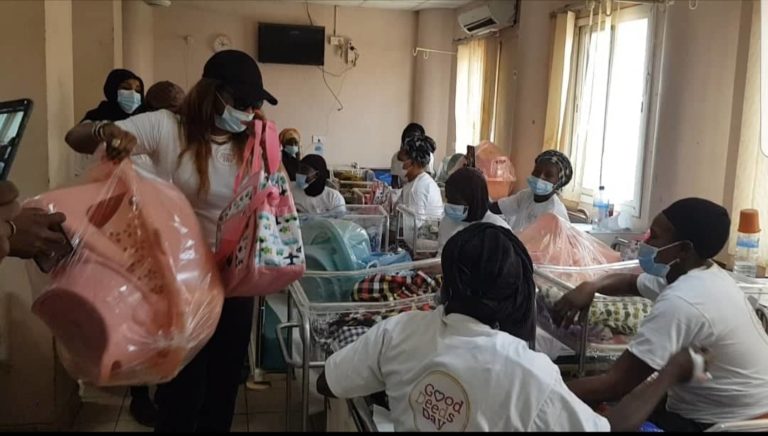
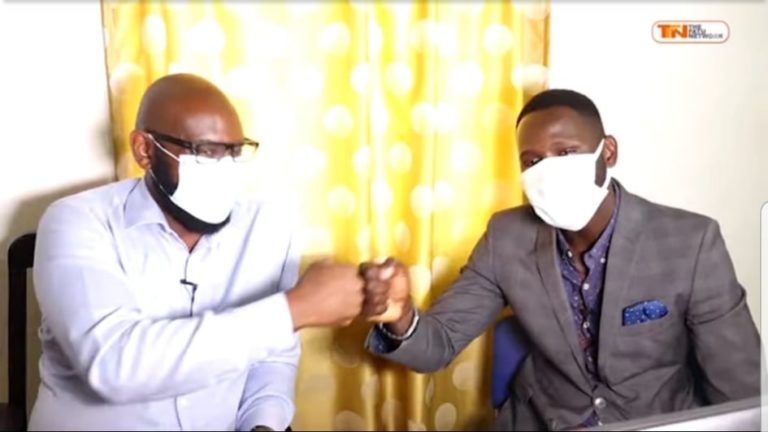

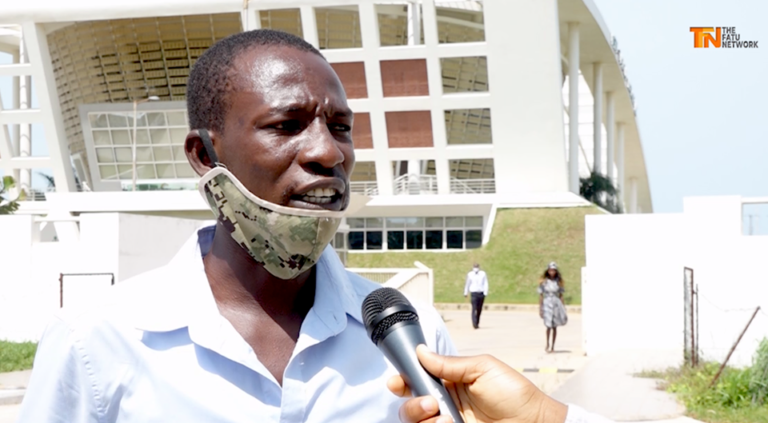
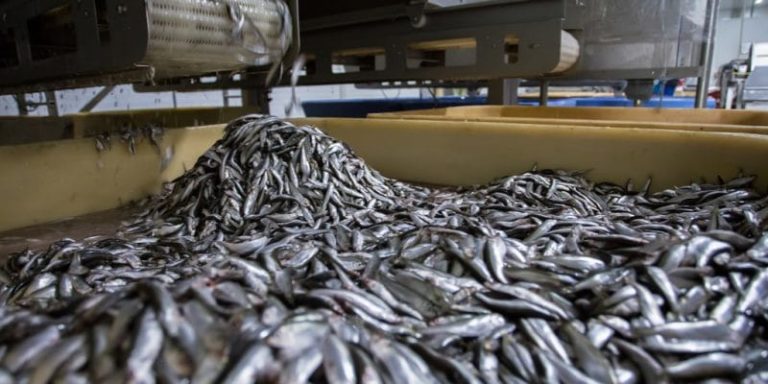
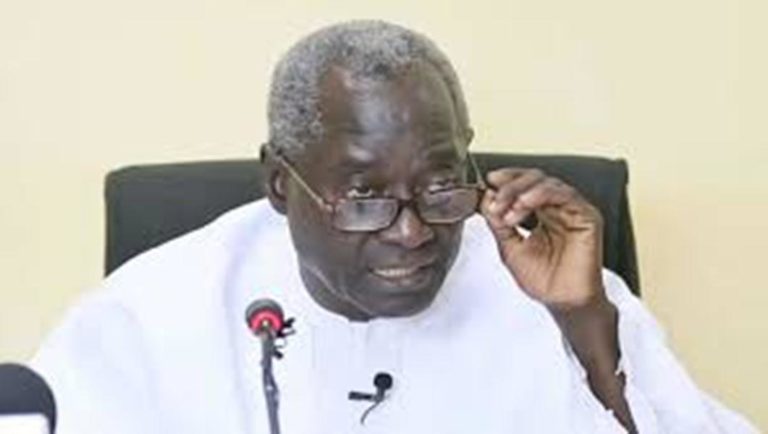
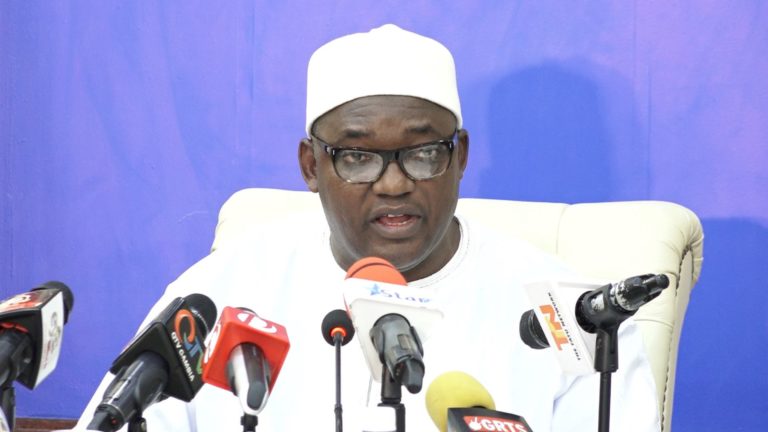
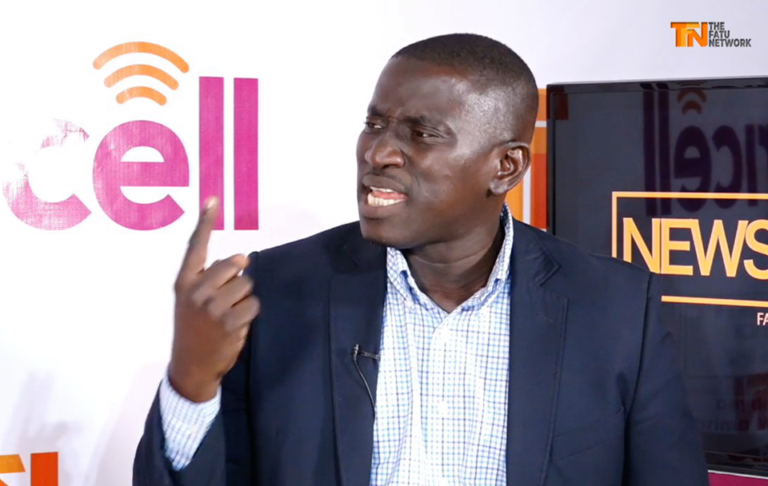
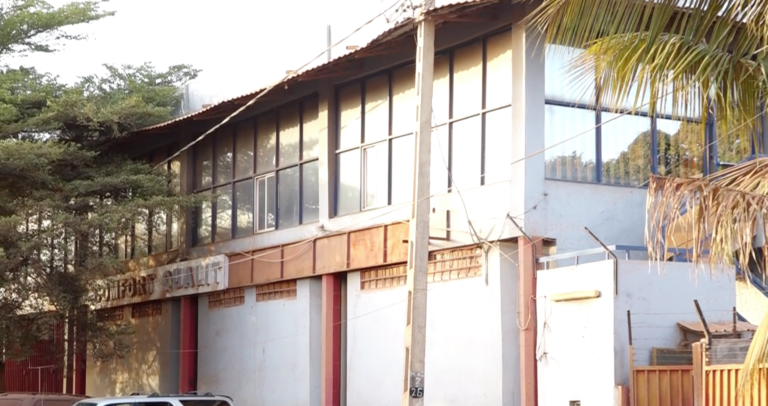
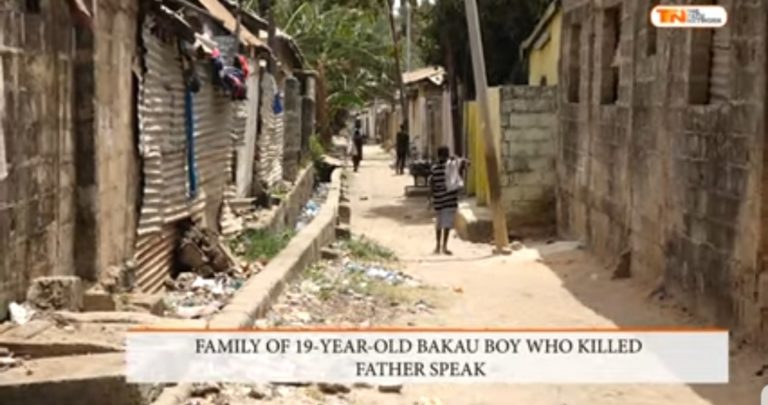
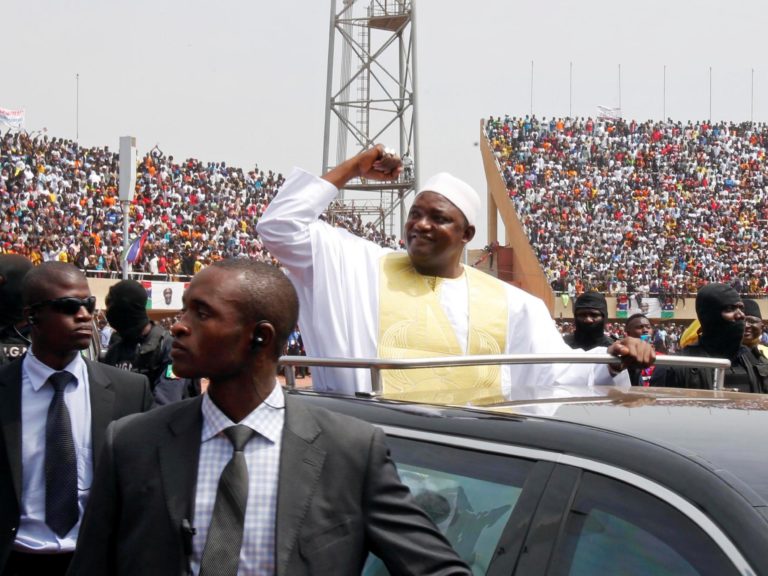

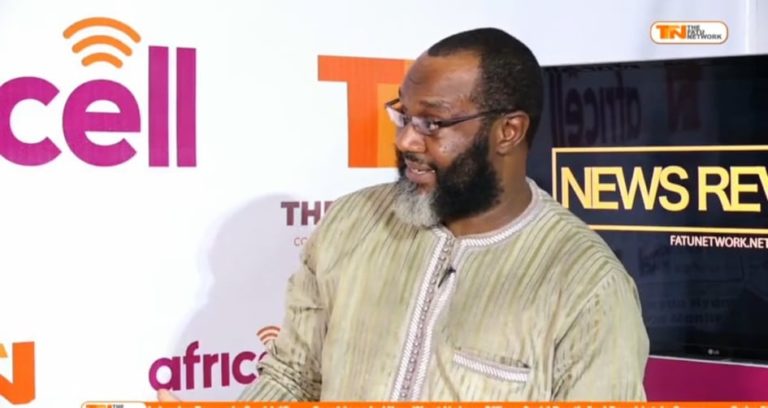
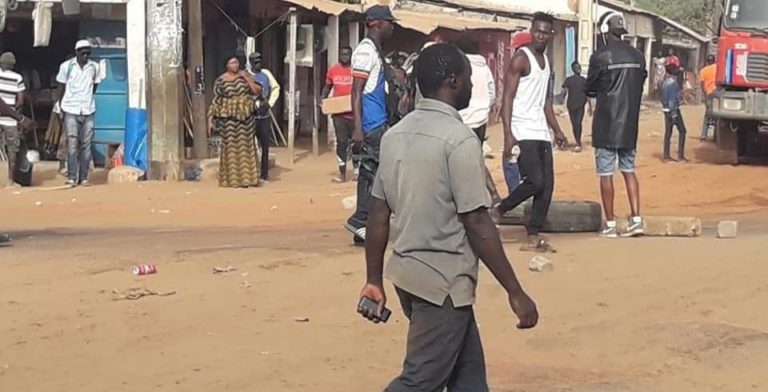
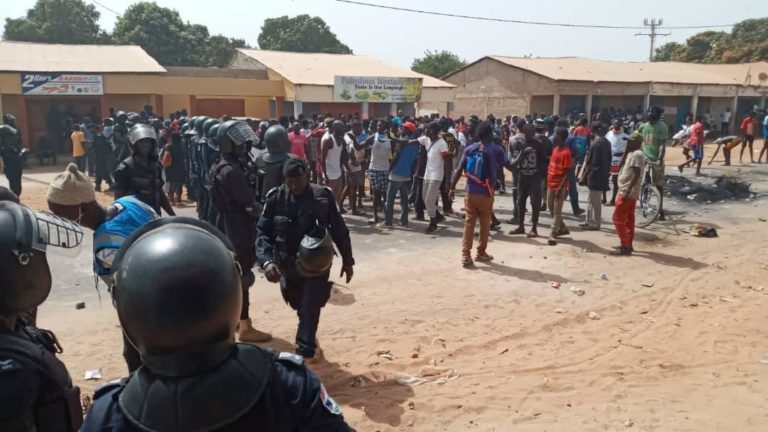
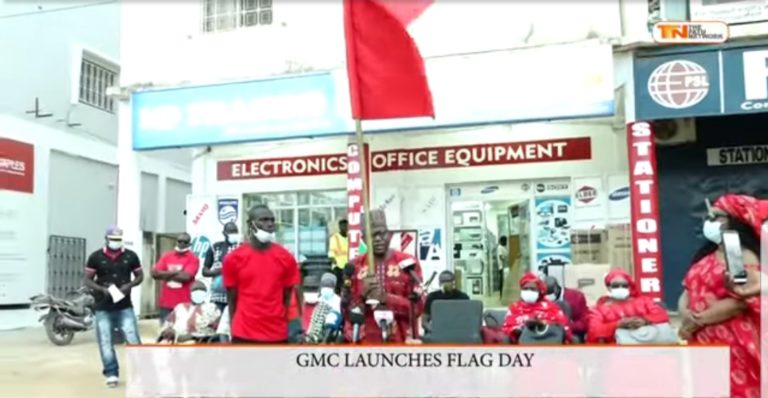
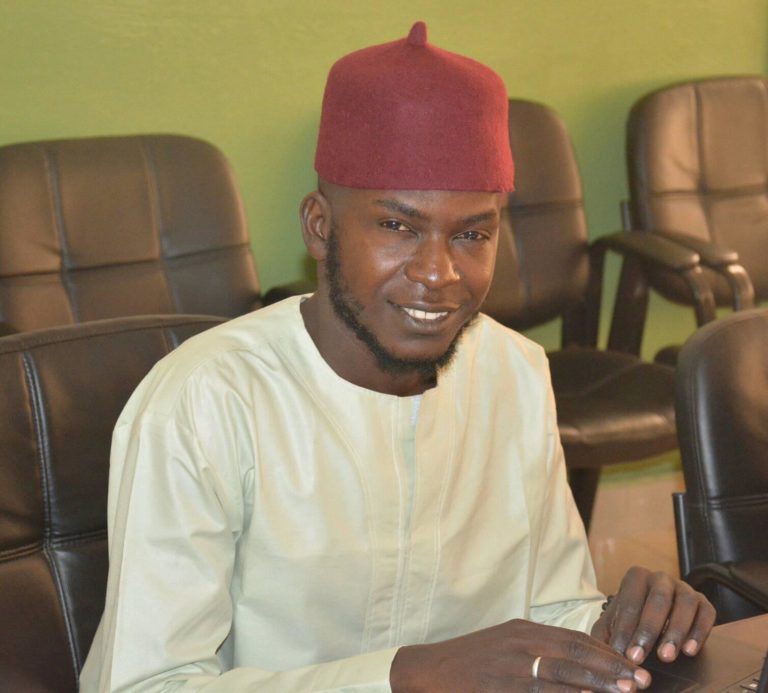
Sir Gaye Sowe’s Refreshing Testimony…
By Zakaria Kemo Konteh, ZKK
Over the course of it’s public hearings, we have witnesses appeared before the TRRC giving accounts of unimaginable horrible and disgusting things they did and experienced. Some of these testimonies were not only gripping but agonizing to listen to or watch, leaving many of us viscerally outraged and traumatized. They painted a vivid picture of an out-of control President (Yahya Jammeh, of course!) who used lethal and brute force along with really other degrading rights violation techniques to rule our country for 22 years.
But yesterday’s riveting testimony by one of our country’s most respected human rights and Constitutional experts (he humbly prefers to be called specialist), Gaye Sowe, brought a different perspective to the whole argument with some disturbing parallels between what obtained under Yahya Jammeh and what could still happen now and in the future. The 1997 Constitution, the most obnoxious anti-Gambia and anti-democracy legal instrument ever, was also designed not only to give an entrenched legal justification for the July 1994 treasonous overthrow of a democratic elected government, it goes further to ensure all but coronation of Yahya Jammeh as the King of Gambia with all powers – imaginary and avaliable – concentrated in his hands. Sir Gaye Sowe’s presentation also provided us the simplified legal context in regards to some of the provisions Yahya Jammeh relied on to hold all of us hostage and abused our fundamental human rights because, technically, Gambians have little or no rights under the 1997 Constitution.
Thus, the argument or the idea that this bastardized Could simply have been amended to suit our country is ludicrous, lame and devoid of any compelling logic.
Yet, and perhaps the most somber feeling of national tragedy and inexcusable failure is the haunting realization that the same pro-Kingship and anti-Gambian 1997 Constitution is still in force and, damningly, is still being favored by President Barrow over the people-friendly, pro-democray , progressive and check and balance Draft Constitution. To think that four years after Jammeh’s ouster we are stuck with his favorite whip is the height of insult.
Like many Jammeh apologists, President Barrow and his minority but decisive allies in the National Assembly all idolize Yahya Jammeh and there is no better way to imitate and hold onto the vestiges of his excesses than the continuing utilization of his brainchild 1997 Constitution. In my books, this represents a shameful and an unforgivable betrayal of our country that transcends political ideology and affiliation. I will never accept nor rationalize or even excuse the weight and significance of this treachery.
And in the wise words of both Lead Counsel Faal and echoed by Sir Gaye Sowe, Gambians deserve better and we can do better. I must add that we cannot and will not do better until we wish better for ourselves, work on bettering ourselves and resist every attempt – political or otherwise – that seeks to subjugate us and stymie our progress as a country. To begin that journey, let’s get rid of the 1997 Constitution and anyone, group or entity beholding us to it..